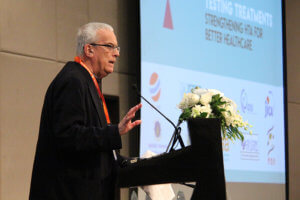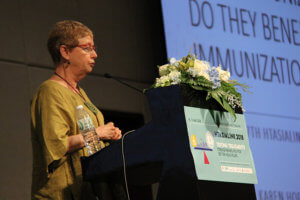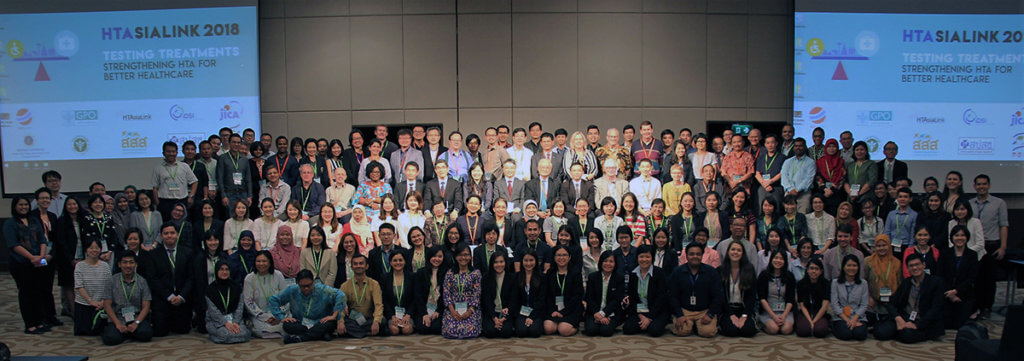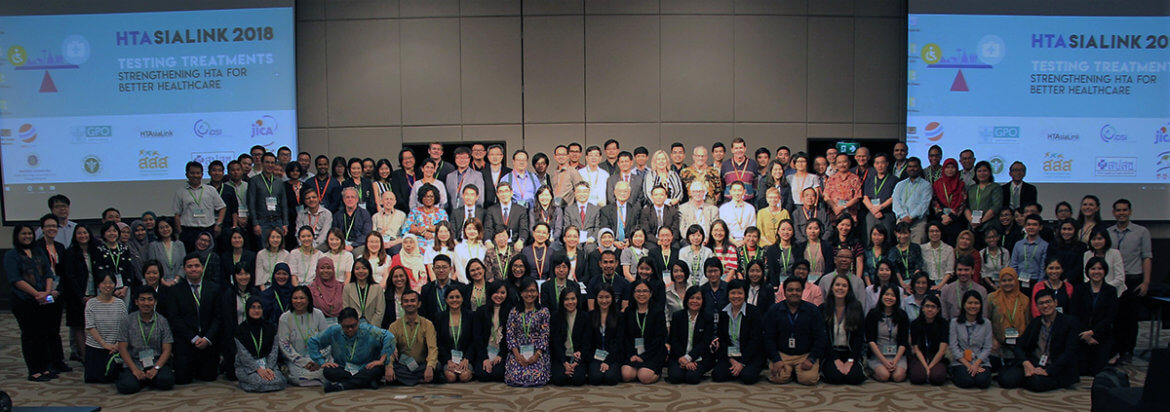This month iDSI attended the HTAsia Link conference in Chiang Mai. As always, the event was a jam-packed capacity-building platform for global Health Technology Assessment (HTA) experts and early-career researchers.
The overarching theme this year was strengthening HTA for better healthcare; and the take-home message was the need for policy-makers to be on side for HTA to help bridge the evidence-policy gap.
“Senior politicians need to understand HTA’s objectives and uses; and that HTA done well is credible”, said iDSI Board Chair Professor Tony Culyer during his plenary session. Professor Culyer also expressed the need for multi-disciplinary insights, multi-professional collaboration and ‘friends’: “The road to institutionalising HTA will always be context-specific; as will many of the methods. With this in mind HTA alone won’t be enough – we need health economics as well to figure out how best to implement HTA. Last but not least, we need friends – getting all stakeholders to ‘own’ HTA.”

Professor Tony Culyer
The role of HTA has become more high profile with escalating drug prices, scarce resources, a rising demand for health services and ageing populations threatening the financial sustainability of many health care systems. Economies under pressure require politicians to pay extra attention to how they spend money; and HTA can provide valuable information to assist politicians to prioritise and allocate budgets to the most cost-effective activities.
Across the three-day event the 250-strong audience had options to attend a range of plenaries and speeches, including talks on understanding the editorial process and authors responsibilities; experiences of using unsafe or ineffective health interventions and technologies; and open discussion environments following research presentations from early-career HTA researchers.
Early on in the proceedings, Health Economists Professor Peter Smith, Dr Katharina Hauck and Dr Ranjeeta Thomas presented on the use of service delivery platforms to strengthen health systems.
Dr Hauck, a senior lecturer in Health Economics at Imperial’s Department of Infectious Disease Epidemiology, said: “Health system strengthening (HSS) are investments into healthcare delivery platforms such as primary care centres and hospitals. It is very difficult to estimate the benefits and costs of HSS, because they impact many interventions that use the platforms, which then all need to be evaluated.”
The session introduced a theoretical approach to model three types of HSS: investments in the efficiency of a platform, in the capacity of a platform and in an entirely new platform. A case study of how a new platform of community health workers would impact the costs of two interventions delivered jointly was presented which focused on HIV testing, counselling and linkage to care and active case finding for TB. The costs of joint provision were contrasted against the costs of separate provision of the two interventions, to estimate the value of HSS comprehensively.
Professor Karen Hofman, Director of iDSI core partner PRICELESS SA presented on mass immunisations, focusing on measles in South

Professor Karen Hofman
Africa and the need for local circumstances and evidence to inform immunisation strategies. Professor Hofman said: “The reduction in routine immunisation coverage associated with the occurrence of mandated catch up campaigns raises the legitimate concern that they may negatively impact health systems’ functioning.”
Decision-making in health care is characteristically complex, however efficient and fair resource allocation is an essential but difficult task. This year’s HTAsia Link was as informative and insightful as ever; in addition to the various talks and plenaries senior researchers were invited to join and provide constructive comments to junior members’ research presentations; and a showcase area made up of five booths, one of which was for iDSI to showcase our latest India policy brief, China timeline and Tanzania case study.

HTAsia Link 2018
